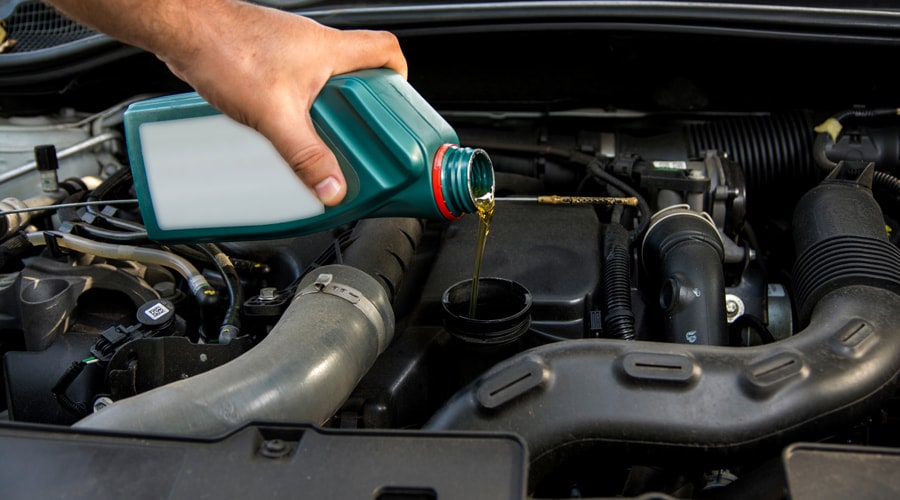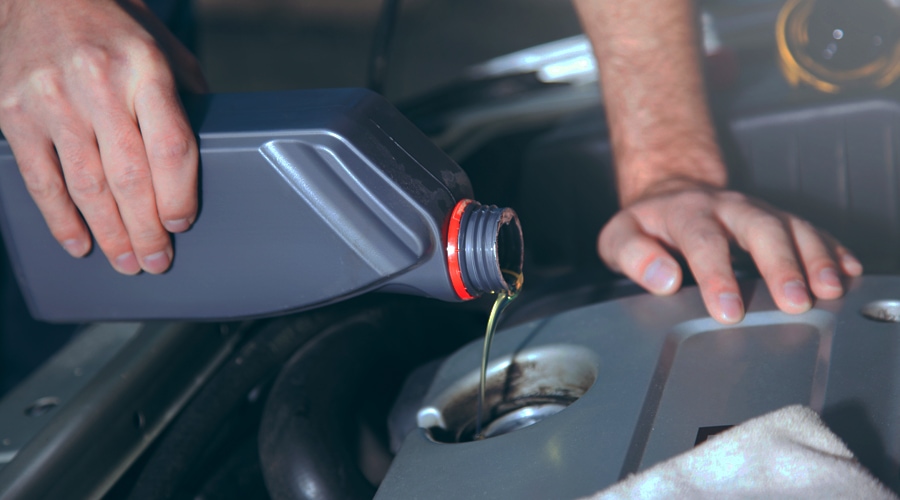
Source: canva.com
Almost every vehicle owner knows how important it is to follow your vehicle manufacturer’s scheduled maintenance list. Doing this keeps your vehicle running well and reduces the number of big-ticket repairs. Making sure you get oil changes regularly is one of the easiest, cheapest, yet most important tasks you can do. Whether you do it at home on your own or take it to a shop, you will incur some costs, but these costs will be minimal to the repair costs you will have without doing it.
Chain Shop Pricing
If you get your oil change done at a chain shop, you’ll pay anywhere from $20 to $100. It obviously costs less if you do it yourself. A shop charges an above-average price for an oil change (but they take less time) if you are using high end full synthetic oil as it has more additives to help protect your engine. Regular oil is the least expensive and synthetic blends are middle-of-the-road. These offer some of the benefits of the high-end synthetic oil at a lower cost.
If you look online, you may be able to find a coupon as most chains offer discounts periodically. You may also be able to get a discount for booking your appointment online or doing a package deal. There are lots of places to comparison shop so make sure you look at all of your options.
Pricing Conventional vs Synthetic Oil
The price of an oil change usually includes four to five quarts of oil, a new oil filter, and the labor charge. The biggest part of that price is the oil that is put in. The price varies based on the type and quality of oil that you choose. Make sure you know which kind to ask for and how often you need to change the oil. It should all be specified in your owner’s manual.
If the manual says you should use synthetic oil, don’t go for the conventional just to save some money. Some newer or high-end cars require that you use synthetic oil so you have to understand its not an optional thing. Using the wrong oil is like using the wrong gas. It may save you money at the outset but will cost a lot more in repairs when it damages the engine.
If your vehicle manual doesn’t specify that you need synthetic oil then you have to decide whether you want to use it or not. It can be good for your vehicle as helps reduce engine wear and stress.
Check out our Synthetic Motor Oil Comparison Chart
Don’t Fall for the Upsell
While synthetic has some benefits over conventional, you may still get hit with additional charges if your mechanic tries to upsell you on some things. While changing the oil is a great time to make sure everything is in good running order and find any real problems, you may end up paying for some things you really do not need.

Source: canva.com
Make sure to always check your owner’s manual if you doubt the timing of a maintenance suggestion. If you are told you need something such as an air filter or maybe to have the transmission flushed, a quick look will tell you if it is time. If other things are suggested, see if the check engine light is on because it usually gives you an early alert to real issues. Here are some upsells that you should investigate in your owner’s manual first:
1. Changing the air filter. This should be somewhere between 30 to 45K miles unless you often drive on dusty roads.
2. Brakes. These should be checked at every oil change but usually need work somewhere around 25 to 70K miles. This range is wide as people drive differently and affect the wear in different ways.
3. Cabin air filter. Change it every 12 to 15K miles or once per year depending on your driving habits.
4. Coolant flush. 30K miles and up to 120K.
5. Fuel injector cleaning. This makes the check engine light come on so using a code tester to find out if it’s the fuel injector is the appropriate way to go.
6. Fuel System cleaning and filter. 60K miles or check engine light with code.
7. Transmission flush. Every 30 to 60K miles but can go for longer periods if the car is brand new.
8. Wiper Blades. You know you need to change the blades when they look dry, cracked, or leave streaks when it is raining.
Upsells are not always a bad thing as they are often needed but be aware that sometimes these things can wait. Always go back to your owner’s manual for the timing of maintenance and replacement parts. The people that engineered and build your vehicle know best.
Final Thoughts
The average cost of an oil change is not bad at all and it is money that is certainly well spent. With oil changes, the garage may insist that the engine has some major issues that will take your car out of service as well as giving you a significant bill for repairs. Always read reviews of the place where you are going taking your vehicle and know what you want before you arrive.
If you know what your car needs, you won’t be coerced into getting upsells from the people doing the work. Not everyone will try to upsell you but understanding the basic costs of an oil change and knowing the timing of the other maintenance your car needs means you won’t pay more than you have to in making sure your car is in good running condition.